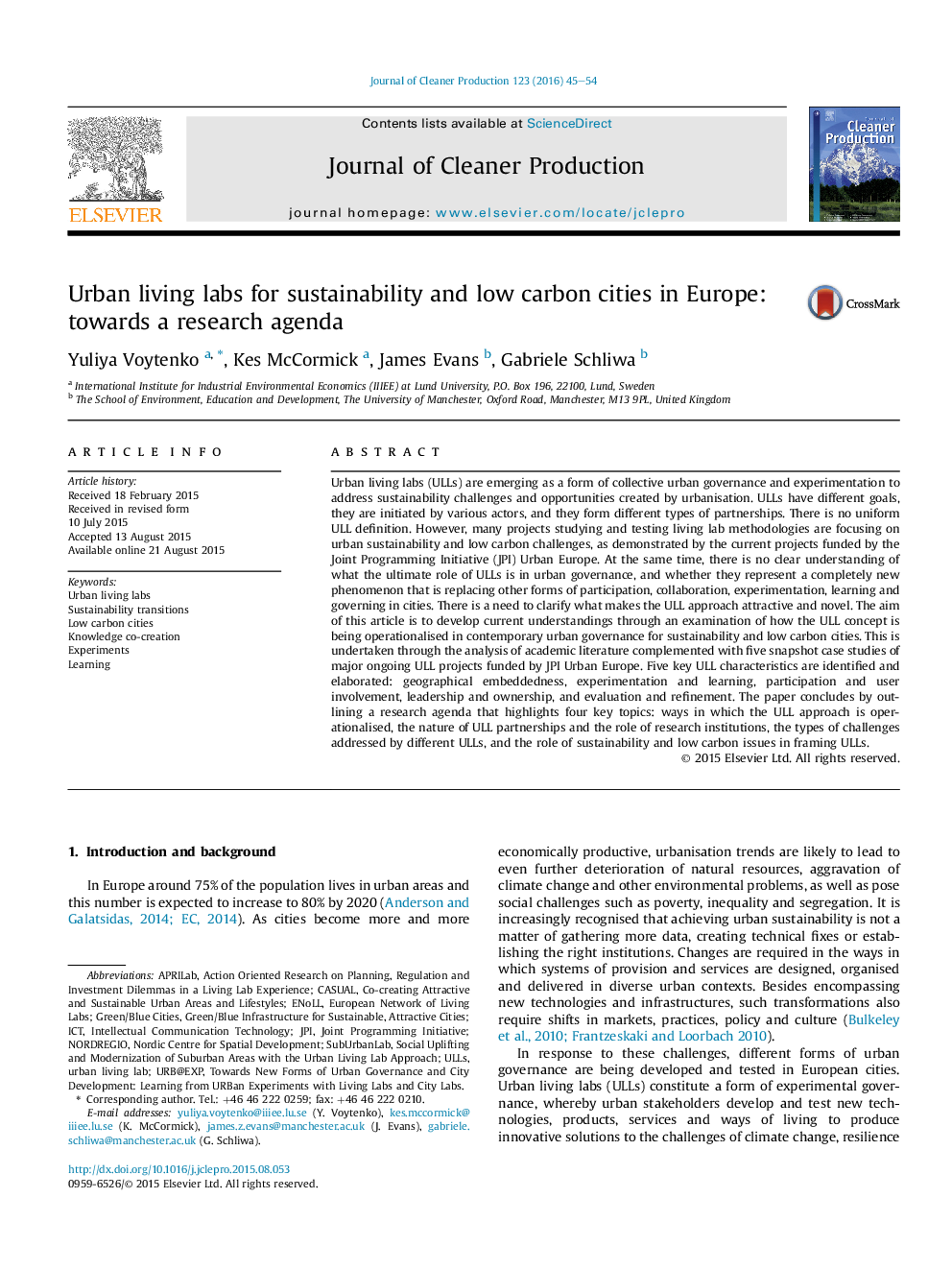| کد مقاله | کد نشریه | سال انتشار | مقاله انگلیسی | نسخه تمام متن |
|---|---|---|---|---|
| 1744218 | 1522126 | 2016 | 10 صفحه PDF | دانلود رایگان |
• European cities face many sustainability challenges and opportunities.
• Urban living labs (ULLs) are a form of collective urban governance to produce innovative solutions.
• There is a need to clarify what makes the ULL approach attractive and novel and outline a research agenda.
• We show how the ULL concept is operationalised in contemporary urban governance for sustainability and low carbon cities.
• We analyse 5 ULL projects and 22 ULL examples to identify and systematise key ULL characteristics.
Urban living labs (ULLs) are emerging as a form of collective urban governance and experimentation to address sustainability challenges and opportunities created by urbanisation. ULLs have different goals, they are initiated by various actors, and they form different types of partnerships. There is no uniform ULL definition. However, many projects studying and testing living lab methodologies are focusing on urban sustainability and low carbon challenges, as demonstrated by the current projects funded by the Joint Programming Initiative (JPI) Urban Europe. At the same time, there is no clear understanding of what the ultimate role of ULLs is in urban governance, and whether they represent a completely new phenomenon that is replacing other forms of participation, collaboration, experimentation, learning and governing in cities. There is a need to clarify what makes the ULL approach attractive and novel. The aim of this article is to develop current understandings through an examination of how the ULL concept is being operationalised in contemporary urban governance for sustainability and low carbon cities. This is undertaken through the analysis of academic literature complemented with five snapshot case studies of major ongoing ULL projects funded by JPI Urban Europe. Five key ULL characteristics are identified and elaborated: geographical embeddedness, experimentation and learning, participation and user involvement, leadership and ownership, and evaluation and refinement. The paper concludes by outlining a research agenda that highlights four key topics: ways in which the ULL approach is operationalised, the nature of ULL partnerships and the role of research institutions, the types of challenges addressed by different ULLs, and the role of sustainability and low carbon issues in framing ULLs.
Journal: Journal of Cleaner Production - Volume 123, 1 June 2016, Pages 45–54
